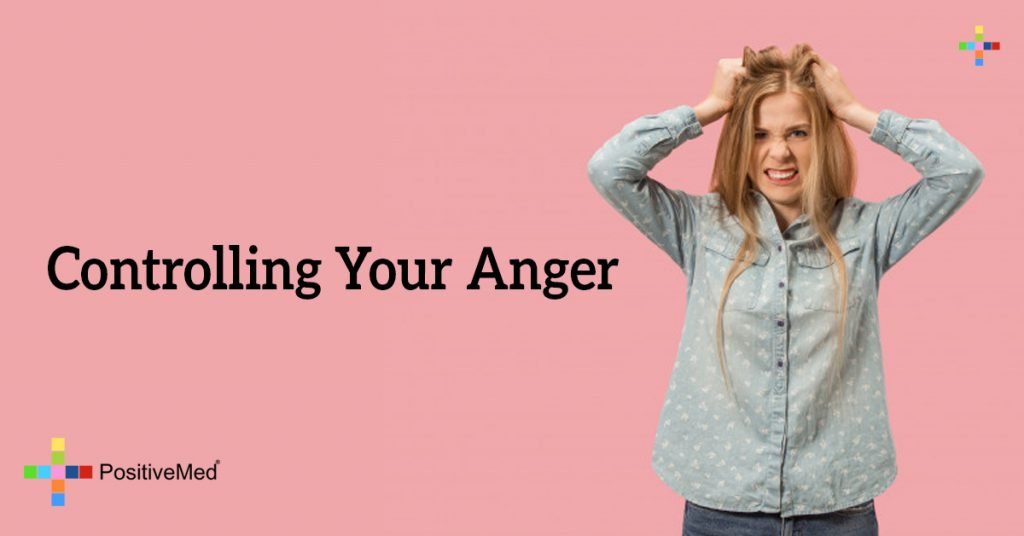
Controlling Your Anger By: Andres Carvajal Edited By: Stephanie Dawson Everyone knows what anger is, we have all felt it. It can be temporary, for a few minutes, or it can last a few hours, days, or even years, with resentment. Anger is a basic human emotion, normal and in the right doses, healthy. When we lose control of this emotion it can become destructive and toxic and generate problems at work, in relationships, and overall life quality. This emotion can make you feel you are closer to becoming unpredictable and powerful. Anger is related to psychological and biological changes within the brain. When people get mad or angry, heart rate and arterial pressure rises, the same happens with hormones, energy, adrenaline, and other hormones involved in fear and anger responses. Anger can be triggered by external or internal cues. We can get mad at a particular person, a supervisor or colleague, or because of something that happened in an unpredictable way like a traffic jam, or cancelled flight. Anger can be caused by worry or personal issues. Memories of traumatic events or moments of anger can trigger feelings of anger. There is no natural way to express anger, every person has their own aggressiveness. You might know people that never get angry, while others tend to be angry all day long. Anger is a natural and instinctive response to menace, it inspires strong feelings, aggressiveness, and behaviors that allow us to fight and defend ourselves when we are attacked or feel threatened.  There are natural ways of expressing this emotion. We cannot hit or attack every person by whom we feel threatened, or every person that irritates us. Laws and social norms of convenience and common sense are the guidelines that allow a society free of perpetual aggression. Many don’t feel comfortable when they are angry, they might try conscious and unconscious ways to deal with angry feelings. Express your angry feelings. When assertiveness is part of your repertory you start expressing your anger in a respectful and non-threatening ways. If you choose this option you can stand up for yourself and express your needs without hurting others, its about respect. Repression of anger and transforming it into another feeling is a way of dealing with it. This happens when you stop thinking about anger and concentrate on something positive. The objective of this defense mechanism is to transform anger in a constructive manner. This response is not always effective since it doesn’t allow us to express anger, the anger is kept within and transformed into passive-aggressive behaviors. If anger is kept in it can be bad for your heart health. Calm yourself. When you calm yourself you can control your inner responses and follow necessary steps. Progressive relaxation techniques will help you calm down, if by nature you are calm, that helps. The objective of anger management is to reduce the physiological and psychological arousal of anger reactions. If you cannot avoid or change the situation that creates anger you can control your response. This therapy involves expressing anger through different ways, identifying the causes and roots of anger and providing new tools and solutions for dealing with anger-prone situations. A healthy thing to do is to learn relaxation techniques and techniques of calming down first, then using techniques aimed at problem-solving or increasing self-control and communication.
There are natural ways of expressing this emotion. We cannot hit or attack every person by whom we feel threatened, or every person that irritates us. Laws and social norms of convenience and common sense are the guidelines that allow a society free of perpetual aggression. Many don’t feel comfortable when they are angry, they might try conscious and unconscious ways to deal with angry feelings. Express your angry feelings. When assertiveness is part of your repertory you start expressing your anger in a respectful and non-threatening ways. If you choose this option you can stand up for yourself and express your needs without hurting others, its about respect. Repression of anger and transforming it into another feeling is a way of dealing with it. This happens when you stop thinking about anger and concentrate on something positive. The objective of this defense mechanism is to transform anger in a constructive manner. This response is not always effective since it doesn’t allow us to express anger, the anger is kept within and transformed into passive-aggressive behaviors. If anger is kept in it can be bad for your heart health. Calm yourself. When you calm yourself you can control your inner responses and follow necessary steps. Progressive relaxation techniques will help you calm down, if by nature you are calm, that helps. The objective of anger management is to reduce the physiological and psychological arousal of anger reactions. If you cannot avoid or change the situation that creates anger you can control your response. This therapy involves expressing anger through different ways, identifying the causes and roots of anger and providing new tools and solutions for dealing with anger-prone situations. A healthy thing to do is to learn relaxation techniques and techniques of calming down first, then using techniques aimed at problem-solving or increasing self-control and communication.





